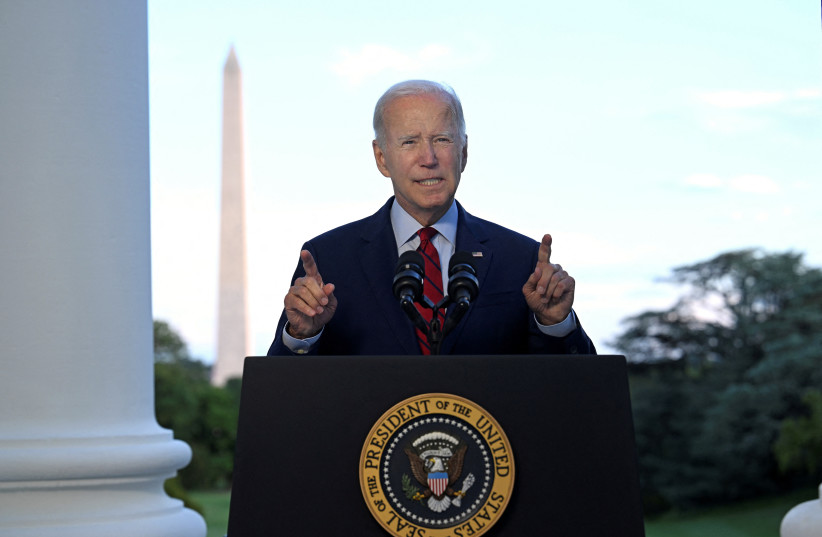Does anyone think the same Western strategy will nail down a nuclear deal with Iran this week when it has failed in so many previous rounds?
Even US negotiators do not really believe that the latest nuclear talks with Iran, which started on Thursday, will lead to an agreement.
The strategy in Washington for 20 months has been mostly to play “good cop” to the Islamic Republic, and hope that the contrast with the Trump administration will convince it to return to the “nuclear box” of limitations set forth in the 2015 JCPOA deal.
Accordingly, the Biden administration has made a variety of reported concessions to Tehran, including agreeing to allow them to keep new advanced centrifuges for enriching uranium in storage rather than having to destroy them.
What has the US said so far?

In fact, the sticking point has been that Supreme Leader Ayatollah Ali Khamenei is not sure whether he wants a deal resembling the JCPOA at all.
First, the Trump administration unilaterally exited the deal.
This proved Khamenei’s conspiracy theories about the West being untrustworthy. Since there could be a Republican president elected in two years, why trust the Americans again?
Second, the JCPOA never really brought Iran the full economic benefits it promised even before Trump pulled out. A large number of non-nuclear sanctions remained in place, and because Western investors were turned off by Iranian corruption and the potential of future conflicts with the US.
Third, Khamenei believes the world is more multipolar and favorable for his country today than it was in 2015, when he believed he could not ignore the US.
Today he has the possibility of resting his economy on support from China and Russia, despite full Western sanctions, a more and more enticing and realistic option.
It's all about the Middle East
An expanding number of officials in the US and Israel believe Iran’s request to the US to remove the IRGC from its Foreign Terrorist Organizations list was not a real request as much as a way to delay and cloud negotiations.
Tehran has now dropped the demand – while finding other reasons not to sign a deal – even as it insisted for months on the demand being a make or break issue.
All this suggests that Iran has other motives for continuing negotiations besides reaching a deal, from playing for time to hiding aspects of its nuclear program so that even if it “comes clean” at a later date, it will have packed away key components for a future rush to break out a bomb. It will also help Tehran avoid getting blamed if no deal is reached.
If the EU-3 and the US all vote to snap back worldwide UN sanctions, Russia and China could not block it. So coming to the table periodically and trying to place the blame on the US could help Tehran avoid a referral to the UN Security Council.
Meanwhile, why has Washington not threatened a deadline to send the issue of Iranian nuclear violations and noncooperation with the IAEA to the UNSC? If US President Joe Biden does not want to threaten military force, wouldn’t a UNSC threat seem a possible way to get Khamenei to cross the Rubicon?
So what do the negotiations mean?
That’s what makes the negotiations that started on Thursday so hard to understand.
Khamenei has released a series of lieutenants to threaten moving toward a nuclear bomb, his seeming tactic for upping the pressure on America for more concessions.
All Washington has done is institute some minor additional sanctions, at most a diplomatic parking ticket for Khamenei at this point.
Of course, both sides could still stun the world with a deal this weekend, as they both say that more than 90% of the issues are agreed upon.
But it is unclear – with Iran sending off provocative signals and with the US lacking a Plan B, such as a believable threat of force or major escalation like setting a deadline for the UNSC to invoke the global sanctions snapback – why Biden thinks this round will turn out any differently.
